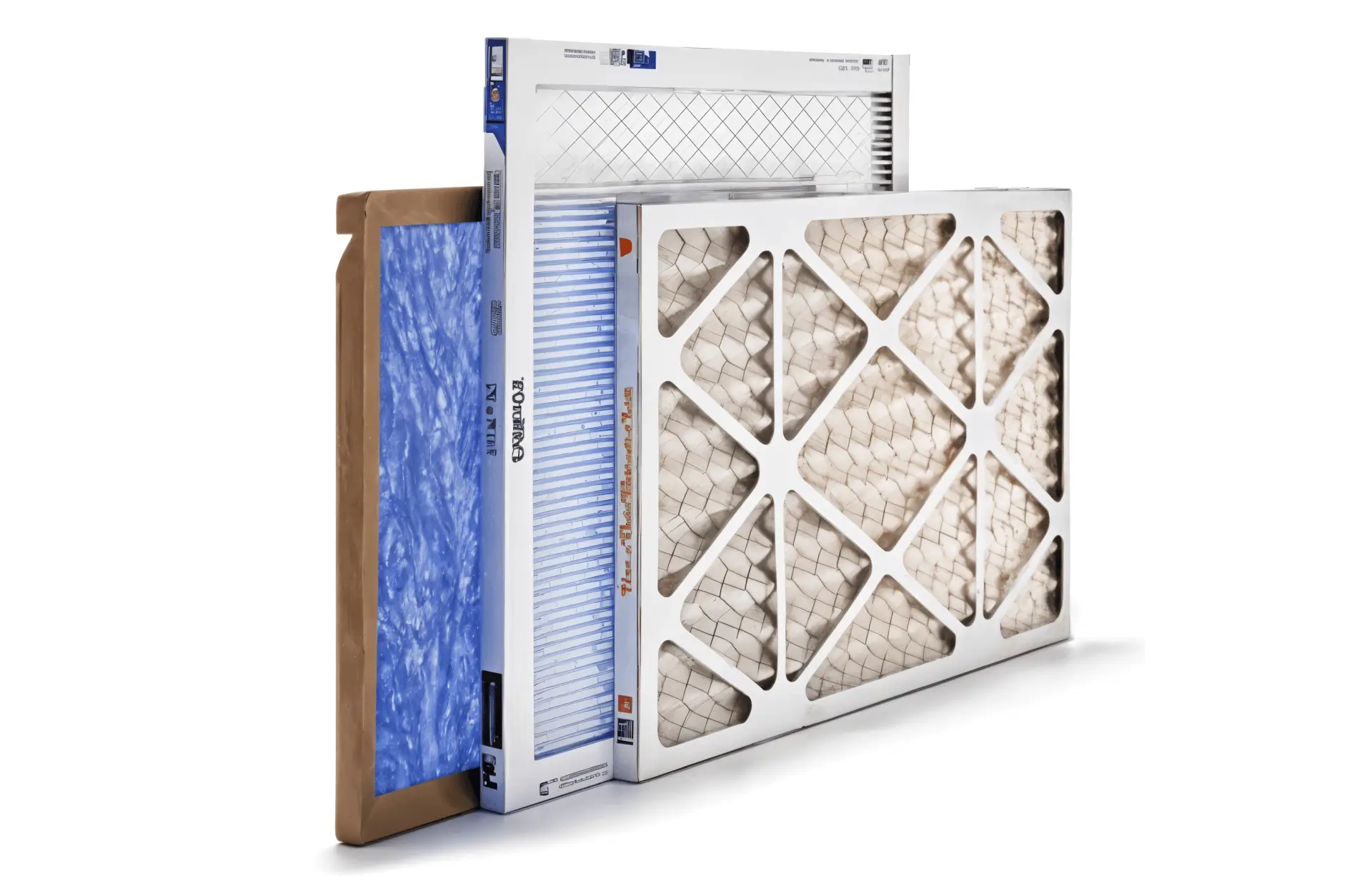Allergy symptoms inside your home usually mean one thing — the air you’re breathing isn’t as clean as you think. And choosing the best HVAC filters for allergies isn’t optional; it’s the only real way to reduce dust, pollen, mold, pet dander, and other airborne irritants that constantly trigger sneezing, itching, and breathing issues.
This guide breaks down exactly which filters work, which don’t, and how to choose the right allergy air filter for home use based on your needs.
Why Your Home Needs a High-Quality Allergy Filter
Indoor air can contain 2–5 times more allergens than outdoor air.
Regular filters trap dust — but allergen particles are much smaller, and most cheap filters completely miss them.
If you want actual allergy relief, not just “basic dust control,” you need a filter that captures microscopic particles. For tips on keeping your home’s air consistently clean, check our guide to improving indoor air quality.
Choosing the Right Filter Size
Before comparing filter types, make sure you’re using the correct size.
A filter that’s even slightly off-size will:
- Restrict airflow
- Stress your HVAC system
- Reduce the filter’s effectiveness
Measure your current filter and match it exactly to manufacturer specifications — otherwise even the best filter won’t work properly. Learn more about the risks of running an HVAC system without a filter if you’re unsure.
Types of Air Filters — Which Ones Actually Help With Allergies?
Fiberglass Filters (Don’t Buy These for Allergies)
- They only capture large dust particles.
- Allergen-level particles pass right through.
Pleated Filters (Better Option)
These capture finer particles like:
- Mold spores
- Pet dander
- Dust mites
- Great for mild allergy homes.
HEPA Filters (Best for Allergies)
A true HEPA filter traps 99.97% of particles ≥0.3 microns, including:
- Pollen
- Mold
- Pet dander
- Smoke
- Bacteria
If you’re wondering, do allergen air filters work?
HEPA filters are the proof that yes, they do — when you buy the right type.
Understanding MERV Ratings (The Real Ranking Factor)
MERV ratings show how efficient a filter is.
- MERV 1–8 → basic dust
- MERV 9–12 → moderate allergies
- MERV 13–16 → severe allergies & asthma
For the best MERV rating for allergies, choose MERV 11–13 (or higher if your system supports it). High-rated filters can significantly reduce allergens and also improve furnace efficiency.
These higher-rated HVAC filters for allergies trap:
- Pollen
- Dust mites
- Fine dust
- Smoke
- Pet dander
This is where 90% of homeowners make the wrong choice by buying a cheap low-MERV filter.
Best Air Filter Options Based on Your Allergy Type
Google loves content that solves user-specific problems — aur ranking me yeh section bahut madad karega.
- If you have dust allergies: Go with MERV 11–13 pleated filters.
- If you have pets: Use MERV 13 or HEPA, plus change it more frequently.
- If you have asthma or severe allergies: HEPA or MERV 14+ is strongly recommended.
- If you have smoke sensitivity: MERV 13+ or activated-carbon HEPA works best.
How Often Should You Replace an Allergy Filter?
For allergy homes, the ideal replacement cycle is:
- Every 30–45 days → high allergies/pets
- Every 60 days → moderate allergies
- Every 90 days → mild allergies
A dirty filter = recirculating allergens all day. Learn more about how often you should replace your air filters.
Las Vegas Homeowners: Special Note for Your Climate
Since fluctuating desert dust levels are common in Las Vegas, allergy sufferers often need:
- MERV 13+ filters
- More frequent changes
- Optional carbon layer (for smoke/dust odor)
Final Recommendation: What Should You Buy?
For most homes with allergies, the clear winner is:
- MERV 11–13 pleated filter
- For strong allergies → True HEPA filter
- For pet-heavy homes → HEPA + carbon layer
These are widely considered the best HVAC filters for allergies because they catch the smallest allergy-triggering particles without suffocating your system.
FAQs
Do allergen air filters really work?
Yes — but only filters with higher MERV ratings or HEPA technology work for allergy-sized particles.
Which MERV rating should I buy for allergies?
MERV 11–13 is ideal. Severe allergy homes can go higher if their HVAC supports it.
Is a HEPA filter better than a pleated filter?
Yes — HEPA captures the smallest particles.
Pleated filters are great, but not as powerful.
How do I know if my HVAC supports HEPA?
Check manufacturer specs or confirm with a technician.









